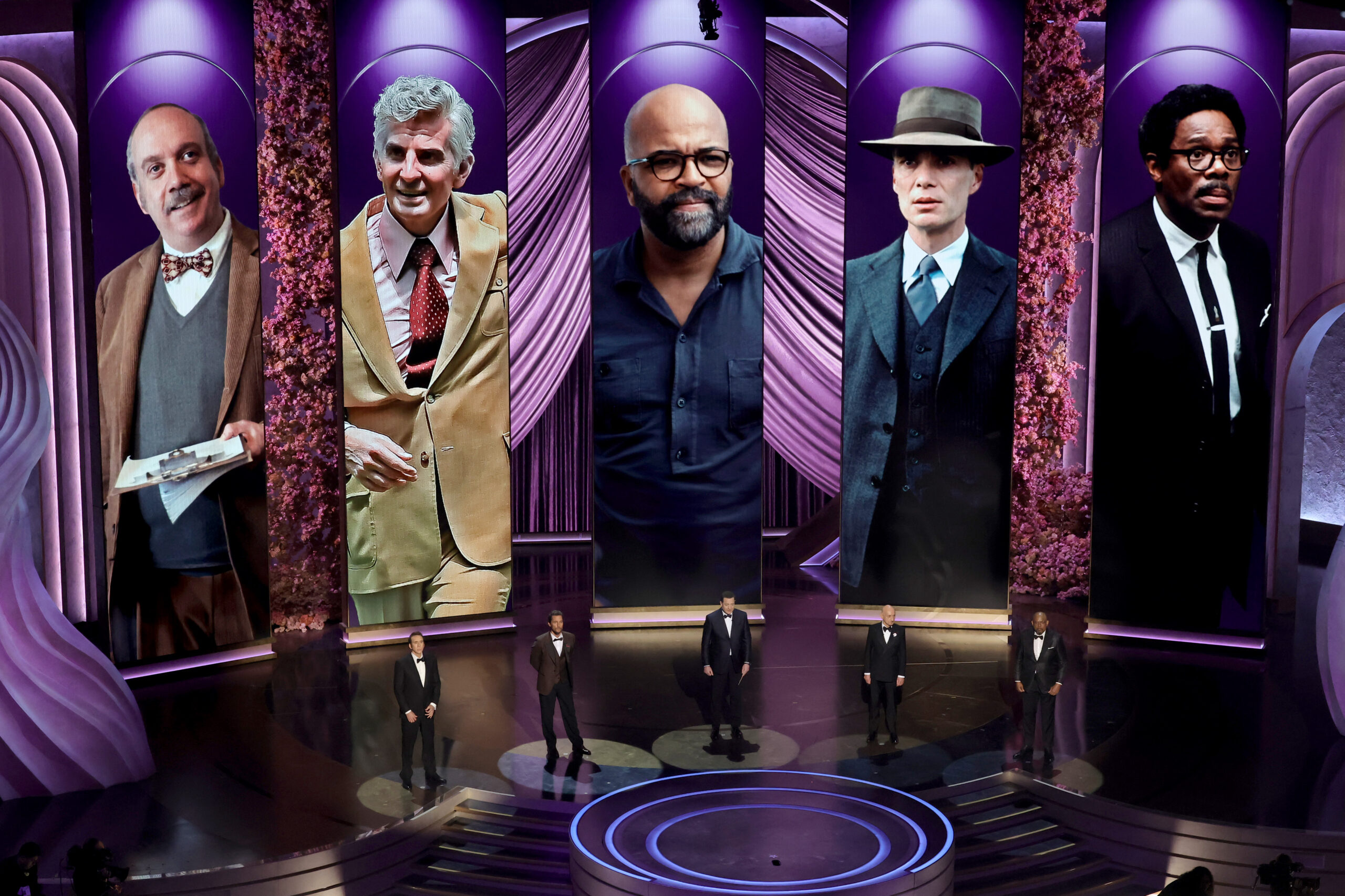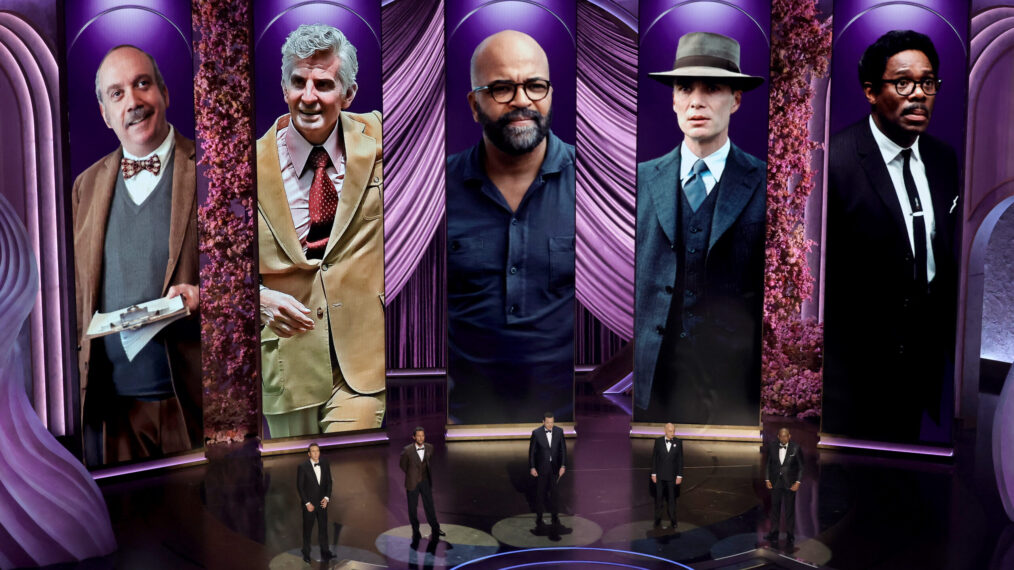
At the 96th Oscars, it truly was an honor just to be nominated.
In the smartest and classiest move of an enjoyable Oscar night that clocked in decidedly under the allotted time—not that it should be hard to get the job done in three and a half hours—the presentation of the acting categories allowed each of the nominees to be recognized and congratulated before the envelope was ever opened. Gracious, yes. Emotionally effective, even more so.
Tears were shed among the contenders for the first award (supporting actress) while past recipients read heartfelt testimonials: Jamie Lee Curtis (last year’s winner), a stunning Rita Moreno, Regina King, Lupita Nyong’o and Mary Steenburgen. The Holdovers’ Da’Vine Joy Randolph was overcome even before taking the stage for her expected yet satisfying win. (And her fulsome thanking of her publicist, whom she initially forgot to name, became a running gag.)
Anticipation grew through the night as viewers wondered which other vintage winners might show up to salute their acting peers, and we were never disappointed. (Besides the tradition of bringing out last year’s champs, the list included Sally Field, Jennifer Lawrence, Charlize Theron, Jessica Lange, Matthew McConaughey, Ben Kingsley, Forest Whitaker, Nicolas Cage, Sam Rockwell, Tim Robbins, Mahershala Ali and Christoph Waltz.)
The most one can hope for while tuning into a beast of a show like the Oscars is for it to feel like a celebration of the movies and the medium. And for the most part, that’s how the night played, starting with four-time host Jimmy Kimmel’s solid monologue—which ended on a crowd-pleasing note as he brought out below-the-line representatives of film crews, thanking them for supporting the writers and actors during last year’s industry-halting strikes.
Kimmel’s jokes mostly scored, from groaning puns (Cillian “Silly Ann” Murphy) to a nod to Barbie stars Margot Robbie and Ryan Gosling “winning the genetic lottery” if not an Oscar trophy. (In my home, the loudest laugh came when Kimmel acknowledged that current nominees Robert DeNiro and Jodie Foster were up for Oscars for Taxi Driver 48 years ago: “In 1976, Jodie Foster was young enough to be Robert De Niro’s daughter. Now, she’s 20 years too old to be his girlfriend.”)
The comedy highlight, however, arrived when Kimmel celebrated the 50th anniversary of the Oscars’ infamous “streaker” moment by urging a naked and charmingly sheepish John Cena onto the stage, with only an oversized envelope to cover his privates. “Costumes,” Cena deadpanned in advance of that award. “They are so important, maybe the most important thing there is.”
With moments like that, and a genuinely fabulous production number for Gosling to reprise his “I’m Just Ken” Barbie showstopper, the night sailed along, albeit with very few surprises. (Emma Stone’s second win, for Poor Things, over Killers of the Flower Moon’s Lily Gladstone, was the most significant toss-up, and Stone’s graciousness to her colleague—plus her flustered reaction to the wardrobe malfunction on the back of her dress—made the best of a potentially awkward moment.)
The acceptance speeches were generally stirring, and sometimes timely, most notably the Documentary Feature award going to Frontline’s harrowing Ukraine war chronicle 20 Days in Mariupol. And while the In Memoriam segment was pointedly prefaced by a clip of the late Russian dissident Alexei Navalny (from an earlier documentary film winner), the tributes once again were marred, not just by the inevitable omissions but by the producers’ insistence of upstaging the names and photos of those we lost with an unnecessary dancing ensemble and close-ups of the performers (Andrea Bocelli with son Matteo). What good is a wall of names if we can’t read them?
While this might not have been the most memorable Oscar night, it was a pleasurable one. Except in one predictable corner. Killing time during the show’s last minutes, Kimmel read aloud from an early bad review issued by his most frequent late-night target, a certain former president whose rant prompted this quip: “Isn’t it past your jail time?”
After that burn, Oppenheimer (whose running time was only 30 minutes less than the entire ceremony) took home Best Picture, the blockbuster’s seventh trophy, and another Oscar night went into the history books.
And while Maestro may have been shut out, its multi-hyphenate auteur got the last word, with Philadelphia native Bradley Cooper appearing as himself in the opening scene of the special Abbott Elementary episode that followed. (Calling him “the face of Alias” was my kind of callback.)
